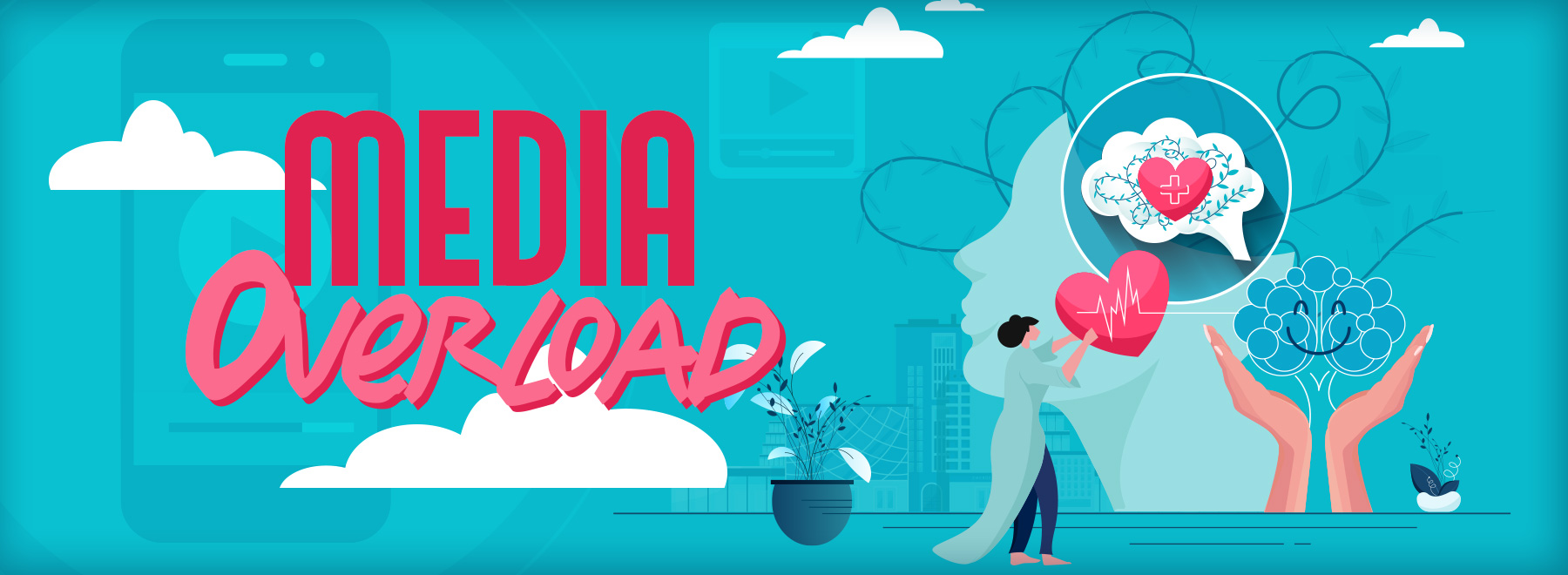Protecting mental health is good for overall health
From global conflicts to natural disasters, social unrest to economic concerns, the nonstop stream of news can be difficult to process—especially when it arrives through multiple channels at once. With just a few swipes or clicks, viewers can be inundated with distressing updates, emotionally charged commentary and alarming imagery that stays with them long after that first impression.
Health professionals at the University of Mississippi Medical Center note that constant exposure to negative or traumatic media can significantly affect a person’s well-being. While staying informed is important, unfiltered and frequent media consumption can trigger or worsen symptoms of anxiety, stress and depression.
The rise of social media as a primary news source has further complicated this issue. According to the Pew Research Center, about half of U.S. adults regularly get news from platforms like TikTok, Facebook, YouTube and Instagram. These platforms often blur the lines between fact and opinion, frequently presenting news alongside emotionally intense reactions, misinformation or disturbing content. This can create a heightened state of emotional reactivity that’s difficult to regulate.
Research has shown that repeated exposure to crisis-driven media increases psychological distress, especially when there isn't an opportunity to emotionally recover between news events. This phenomenon—sometimes referred to as “media overload” or “headline stress”—can lead to physical symptoms such as tension, sleep disruption, fatigue and difficulty concentrating. Over time, it may also contribute to a sense of helplessness or emotional burnout.
Health professionals recommend a few strategies to reduce the effects of media-related stress:
Set boundaries around news consumption.

Disabling push notifications and instead designating specific times to check the news—rather than engaging with it throughout the day—can help reduce anxiety. Avoiding news during emotionally vulnerable times, like first thing in the morning or late at night, can also promote better mental clarity and rest.
“Many people spend time before bed scrolling through social media as a way to decompress from the day and have a little 'me time,’” said Josie Bidwell, lifestyle medicine clinician and professor in the Department of Preventive Medicine. “However, this often ends up in difficulty falling asleep, staying asleep or feeling rested the following day.”
Bidwell recommends no screens (TV, tablet, cellphone or laptop) at least 60 minutes before bed. This helps cue the brain that the day is coming to a close and sleep should begin soon.
Diversify your media intake and app use.
Balancing difficult news with content that inspires, educates or entertains can help offset the emotional weight of negative headlines. Following a range of topics, including the arts, science, culture or community stories can provide a broader and more hopeful perspective.
“Intentional practices to increase focus on positive, uplifting aspects of life is also helpful for many people,” said Dr. Julie Schumacher, clinical psychologist and professor in the Department of Psychiatry and Human Behavior. “Balancing use of news and social media apps with apps that focus attention on gratitude, daily affirmations, or other calming, comforting thoughts can help shift focus away from negative or troubling events in our world.”
Practice body awareness and self-regulation.

Noticing how your body responds to stressful media can be a helpful tool. Physical cues such as shallow breathing, jaw tension or restlessness may indicate the need to pause and reset. Deep breathing, walking, stretching or mindfulness exercises can calm the nervous system and restore a sense of balance.
If you’re not sure how to do these exercises or struggle to do them, help is as close as your fingertips, Schumacher noted. “There are many apps designed to facilitate these exercises, which are often helpful to people who are both novice and seasoned with these strategies.”
Be intentional with social media use.
Because social media platforms are designed to keep users engaged, the goal of most content is to grab your attention and trigger an emotional response. Limiting time on these platforms, unfollowing accounts that amplify fear or outrage, and curating a feed that aligns with your personal values and well-being can make a big difference.
Set time limits and replace scrolling with a health promoting alternative
When it’s time to wind down, Bidwell suggests including a stress reduction activity to your nightly routine. “A warm bath or shower, deep breathing exercises or reading a regular book are great replacements for social media scrolling,” she said.
Reach out for support when needed.
If you’re experiencing persistent stress, sadness or a feeling of disconnection, consider reaching out to a licensed mental health professional for support and strategies to cope with media-related anxiety.
Mental health care is an important part of overall health—and protecting your mental space in a media-saturated world is not only valid, but necessary. "Just a visit or two with a mental health professional can sometimes result in significant improvements in emotional well-being,” said Schumacher.
Managing media intake is not about ignoring the world; it’s about engaging with it more intentionally and protecting your emotional resilience in the process.
— — —
UMMC’s Department of Psychiatry and Human Behavior offers a range of services to help individuals cope with anxiety and stress. To learn more or schedule an appointment, call 601-984-6925.



